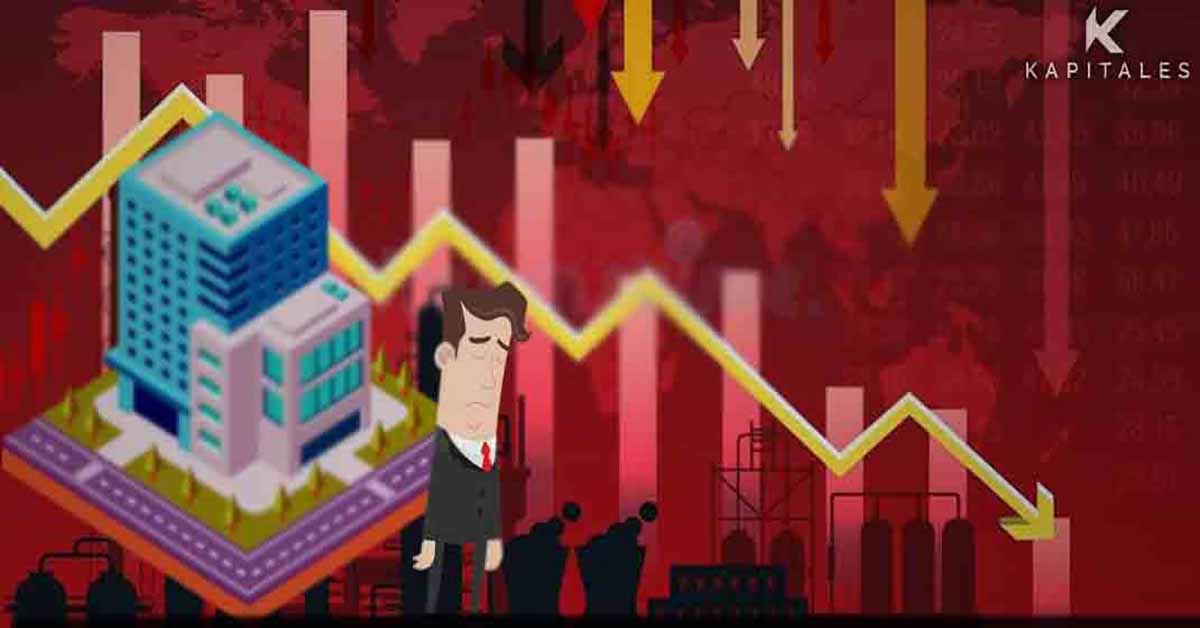
ASX 200 Energy sector was the worst performing sector on 04 January 2023. It slipped by 1.319% and settled at 10780.2. Brent oil futures and Crude Oil WTI Futures ended lower in the previous session on 03 January 2023.
This article will look at the factors that impacted the energy sector’s performance on 04 January 2023.
Earlier it was expected that oil and gas prices might increase this winter in many parts of the world. Investors hoped oil prices would surge due to the solid demand for oil and natural gas amid cold weather conditions. However, mild winter temperatures in many parts of the world eased fears of an energy crisis.
Another reason influencing the energy sector is the possible recession in 2023. Big banks are now predicting that an economic downturn is approaching soon. Most economists at 23 large financial institutions that deal with the Federal Reserve are projecting that the US will have a recession in 2023.
So, the question here is how recession impacts oil and gas prices. The answer is simple. In a recession, the demand for commodities decreases. As a result, oil prices also reduce. Severe recessions leave a permanent impact on oil production and consumption. In 1974, 1980, 2008, and 2020, the recession also left oil production and consumption on a permanently lower trajectory than before.
A recession results in job losses, corporates can go bankrupt. As a result, the demand for oil and gas goes down. Suppliers also have substantial oil in their inventories and are forced to sell at a lower cost.
Another reason influencing the energy sector’s performance is the sharp recovery in the US dollar. The recovery in the US dollar caused oil and gas prices to go down.
Now, the question arises how the strengthening of the dollar impacts oil and gas prices. The logic is simple. Globally, oil and gas are priced in the US Dollar. When the US dollar price goes up, then the price of commodities goes down. For example, there are three people A, B, and C. A is an American, B is Brit and C is an Aussie.
Suppose the current price of crude oil is US$50 per barrel. For an American, the cost will be straightforward. For a Brit, the price will be £41.69 per barrel, and an Aussie will pay AU$73.63. Suddenly, the US Dollar appreciates versus other countries. In this situation, the US Dollar remains unaffected, i.e., US$43 per barrel. On the other hand, due to the US dollar appreciation, the Brit will have to pay more pounds to get the same quantity of crude oil. Similarly, Aussies will have to pay more Australian dollars for the same crude oil.
This reduces buyers, and sellers are forced to sell the crude oil at a lower price which persons B and C are ready to prepare. Thus, oil and gas prices go down.
China is the top importer of crude oil in the world. However, the uncertainty of rising COVID-19 cases in the country after the relaxation of the restrictions is creating doubt amongst investors related to recovery in oil demand. Analysts are worried that the rising infection rates in the country could delay economic reopening and could possibly damage the Chinese economy even more in the near future. . As a result, there was a weakening in demand for crude oil.
Customer Notice:
Nextgen Global Services Pty Ltd trading as Kapitales Research (ABN 89 652 632 561) is a Corporate Authorised Representative (CAR No. 1293674) of Enva Australia Pty Ltd (AFSL 424494). The information contained in this website is general information only. Any advice is general advice only. No consideration has been given or will be given to the individual investment objectives, financial situation or needs of any particular person. The decision to invest or trade and the method selected is a personal decision and involves an inherent level of risk, and you must undertake your own investigations and obtain your own advice regarding the suitability of this product for your circumstances. Please be aware that all trading activity is subject to both profit & loss and may not be suitable for you. The past performance of this product is not and should not be taken as an indication of future performance.
Kapitales Research, Level 13, Suite 1A, 465 Victoria Ave, Chatswood, NSW 2067, Australia | 1800 005 780 | info@kapitales.com


Apr 08, 2023

Apr 07, 2023

Mar 20, 2023

Mar 16, 2023

Mar 08, 2023

Mar 02, 2023

Feb 24, 2023

Feb 16, 2023

Feb 09, 2023

Feb 07, 2023
Nextgen Global Services Pty Ltd trading as Kapitales Research (ABN 89 652 632 561) is a Corporate Authorised Representative (CAR No. 1293674) of Enva Australia Pty Ltd (AFSL 424494). The information contained in this website is general information only. Any advice is general advice only. No consideration has been given or will be given to the individual investment objectives, financial situation or needs of any particular person. The decision to invest or trade and the method selected is a personal decision and involves an inherent level of risk, and you must undertake your own investigations and obtain your own advice regarding the suitability of this product for your circumstances. Please be aware that all trading activity is subject to both profit & loss and may not be suitable for you. The past performance of this product is not and should not be taken as an indication of future performance.